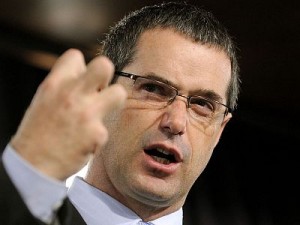
The Australian government has announced it plans to introduce legislation nest year to mandate Internet filtering software be used to protect Australians from obscene material, criminal enterprises, and other harmful material on the Internet—despite claims there’s no way the filter can be completely successful, and will likely lead to censorship, block legitimate material, and curtail speech. If implemented, the move would likely make give Australia a new distinction among the world’s democracies: harshest Internet regulator.
The move isn’t the first time Australian politicians have looked at mandatory Internet filtering: in 2008 the Australian Labor Party put forward an Internet filtering policy proposal, although it garnered little support.
Australian Communication Minister Stephen Conroy said in a statement that the filter was among a set of new measures aiming to stop the distribution of child pornography, materials promoting bestiality and sexual violence, as well as information on illegal activity such as the manufacture and distribution of illegal drugs and how to commit crimes. Material of this nature is already illegal on Australian Web sites, but the country has no capability to prevent it from being published on servers in other countries. Conroy also claims the government would be transparent in how it maintains its list of blocked sites.
“The Government has always maintained there is no silver bullet solution to cyber-safety,” Conroy said. “That is why we have established a comprehensive range of cyber-safety measures, including funding for 91 additional online Australian Federal Police officers and education.”
Critics say there’s no way for such a filter to be effective, and raises the of abuse such as government officials incorrectly or maliciously blocking and censoring material. The filtering software apparently will only over Web-based material, meaning that a good deal of the traffic in banned and illegal material that already takes place via peer-to-peer networking, instant messaging, and other mechanisms won’t be covered by the filter.
The Australian government recently conducted a pilot test in which it claims participating ISPs were able to successfully able to block access to more than 1,300 blacklisted Web sites without significantly impacting end-user performance.
Editors' Recommendations
- Save $100 on this Netgear mesh Wi-Fi system at Crutchfield
- Best Verizon Fios new customer deals: Get 2GB/s internet in your home
- The 6 best internet speed tests for desktop and mobile in 2024
- How to increase your internet speed in 7 easy steps
- How to use a blue light filter on your PC or Mac


